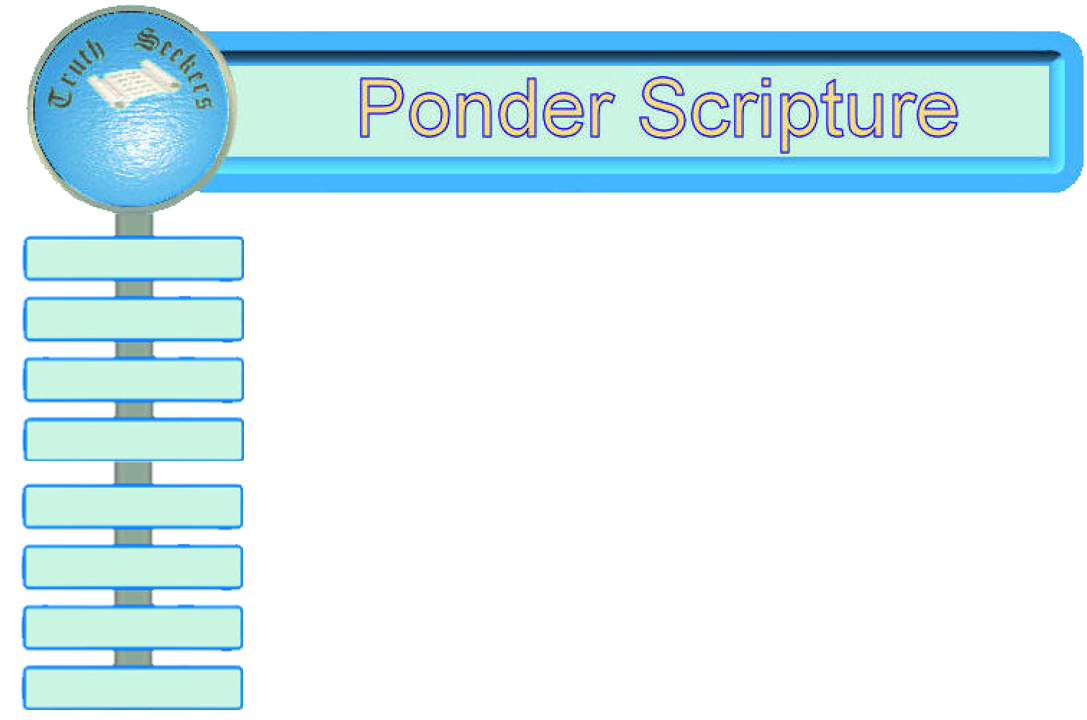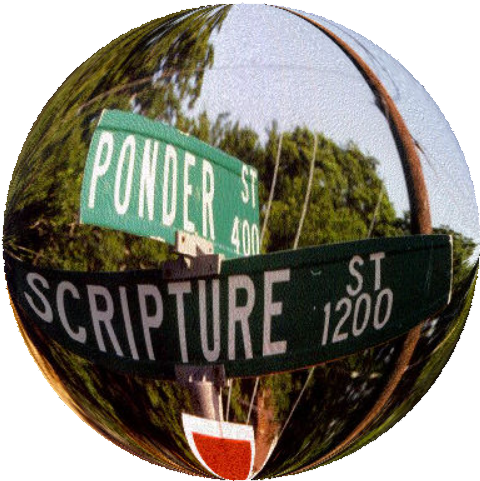

This is what is known as the Tetragrammaton–the name of our Creator and Heavenly Father. It is often transliterated into English as Yahweh. It is displayed here in three forms. The first two are Phoenician (Paleo-Hebrew) script; the other is the Modern Hebrew script.



This is a recording of the PowerPoint presentation I delivered in our home on October 14, 2024 for our annual Day of Atonement gathering. It offers a perspective that I first presented in a message I delivered back in the 1990's. I hope you find it to be a blessing. Click here to listen.
Have the Holy Days of Leviticus 23 Been Fulfilled?
by Larry and June Acheson
A common reason we've heard that the "holy days" of Old are no longer "holy" is that they've been fulfilled by Yeshua the Messiah. I would ask, "How does Yeshua fulfilling holy days make them no longer holy?" I understand Yeshua is our Passover lamb, without blemish, Whose blood redeems Yahweh's people from their sins, but I do not understand how His being the fulfillment of the Passover lamb can be interpreted as "Don't observe Passover any more." If this is how we're supposed to understand the meaning of "fulfill," then according to Matthew 3:15, when Yeshua "fulfilled all righteousness," was righteousness was "done away," too? More ...
Facing the Passover Controversy
When June and I became persuaded that Yahweh’s children are still commanded to observe the holy days that He ordained in His Word, we were immediately embroiled in the controversy pertaining to the timing of the Passover. We patiently read one group’s article, then, just so we could demonstrate that we are willing to listen to both sides of any issue, we requested literature from another group promoting the opposite view. One thing we quickly concluded was that both sides make some excellent points, yet, as it always seems to turn out, we concluded that one view was backed by the most solid evidence. More ...
The topic of the Scripturally-sanctioned way to count to Pentecost is very divisive, even to the point of being a test of fellowship for some believers. Over the years, we have read several passionate opinions outlining the proper way to count, including one group that maintains we are supposed to count fifty days twice. Nevertheless, we are persuaded that only two views are truly worthy of consideration, and those are the two that we compare in our studies. More ...
Also, here's a response to an organization's newsletter article: "The Count to Pentecost"
Here's a link to our original full-length study, Facing the Pentecost Controversy

Is It a Sin to Stay Home During Yahweh’s Feasts?
by Larry and June Acheson
An acquaintance made a point of telling others that I lost my job because I chose to work during the non-holy days of the 2009 Feast of Tabernacles instead of attending a feast gathering. Another acquaintance claimed that we are required, in this day and age, to go to “a place” where Yahweh places His name. These two claims are, in various forms, commonly used to promote the belief that true believers today must attend a feast gathering that is away from home. Let's examine these claims under the light of Scripture. More ...
Every now and then we run into well-meaning folks who are strongly persuaded that one of the Torah requirements includes treating the day of the new moon as a special Sabbath day or, at the very least, a day on which we are not to engage in any employment or carry out any business transactions. In fact, back in the year 2004, a believer challenged me to not work on the day of the new moon so I could experience the blessing. Any day off from work is a blessing, and I always enjoy devoting a day to Bible study and relaxation, but the questions I wrestled with are, "Why aren't we instructed within Torah to abstain from work or business transactions on the day of the new moon?" and "Why are we only commanded to abstain from work on the new moon day of the seventh month?" I found the answer several years ago, and I included it in a chapter of my rebuttal to lunar sabbatarian theology, but since this topic recently came up again, I decided to deliver a PowerPoint presentation addressing this topic on August 2, 2025. This PDF version is largely based on that presentation. Your (constructive) feedback is welcome (seekutruth at aol dot com)! Here's the PDF file.
 To
Dwell or Not to Dwell in Booths
To
Dwell or Not to Dwell in Booths
During the Feast of Sukkot
By Larry Acheson
June and I recently attended a Sabbath meeting wherein the upcoming Feast of Tabernacles was discussed, including whether or not we here in the USA are required to dwell in booths or tents. I explained that June and I have spent many Sukkot feasts in our tent, but not always, and not in the past few years due to various circumstances. I added that the command to dwell in booths only applies to those who are native to the land of Israel. This comment was met with sharp disagreement from a woman who claims that the term "all that are Israelites born," as found in Leviticus 23:42, applies to all peoples, even if they were born in some other land. I certainly respect her commitment to dwell in booths because there is clearly nothing wrong with dwelling in booths or tents during the Feast of Sukkot. However ...


Thank You for visiting our website. May Yahweh Bless you as you continue your search for truth.